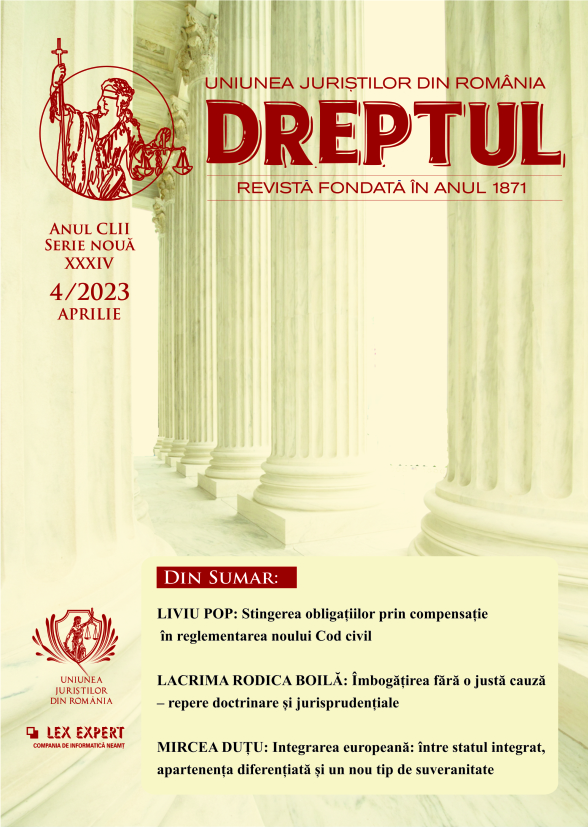Integrarea europeană: între statul integrat, apartenența diferențiată și un nou tip de suveranitate
European integration: between the integrated state, the differentiated affiliation and a new type of sovereignty
Author(s): Mircea DuțuSubject(s): Constitutional Law, EU-Accession / EU-DEvelopment, EU-Legislation
Published by: Uniunea Juriștilor din România
Keywords: European integration; EU law; integrated state; differentiated affiliation; European sovereignty; EU constitutionalisation; primacy of EU law; Schengen Area;
Summary/Abstract: The European integration and the challenges of the reorganisation of the world order generates representative consequences on the statal phenomenon and on its interactions with the community construction, involving, at the same time, mutations and revaluations concerning certain fundamental concepts such as those of state, sovereignty and constitutionalisation. Born in Europe, the modern state evolves in this context to a new category resulted from the status of member of an integration organisation: the integrated state, with its degraded version, of state with differentiated affiliation. It is not (anymore) as any other state, being characterised by the content of the integration connection, which however does not put an end to the statal diversity (the constitutional, administrative and political systems and traditions being preserved), and any constituent state affirming its own conception about the participation in the EU. The presence of Bulgaria and Romania in the Union – by the existence of the cooperation and verification mechanism (CVM) and the non-affiliation to the Schengen Area – expresses the situation of an incomplete affiliation and the degraded status of integrated state. The dialectical tension between the sovereignty (of the states) and the integration (supranational) is amplified by the implications of the insurection of the national souverainism and of reclaiming, with political content for now, of a European sovereignty, marked by solidarity in front of the global systemic risks. The advances of the project of a „Europe of the future, with variable geography”, accentuated by the initiative of the European political community, amplify the challenges of the juridical and institutional practices of the Community mechanism and of the related theoretical reflection.
Journal: Revista „Dreptul”
- Issue Year: 2023
- Issue No: 04
- Page Range: 90-110
- Page Count: 21
- Language: Romanian
- Content File-PDF

